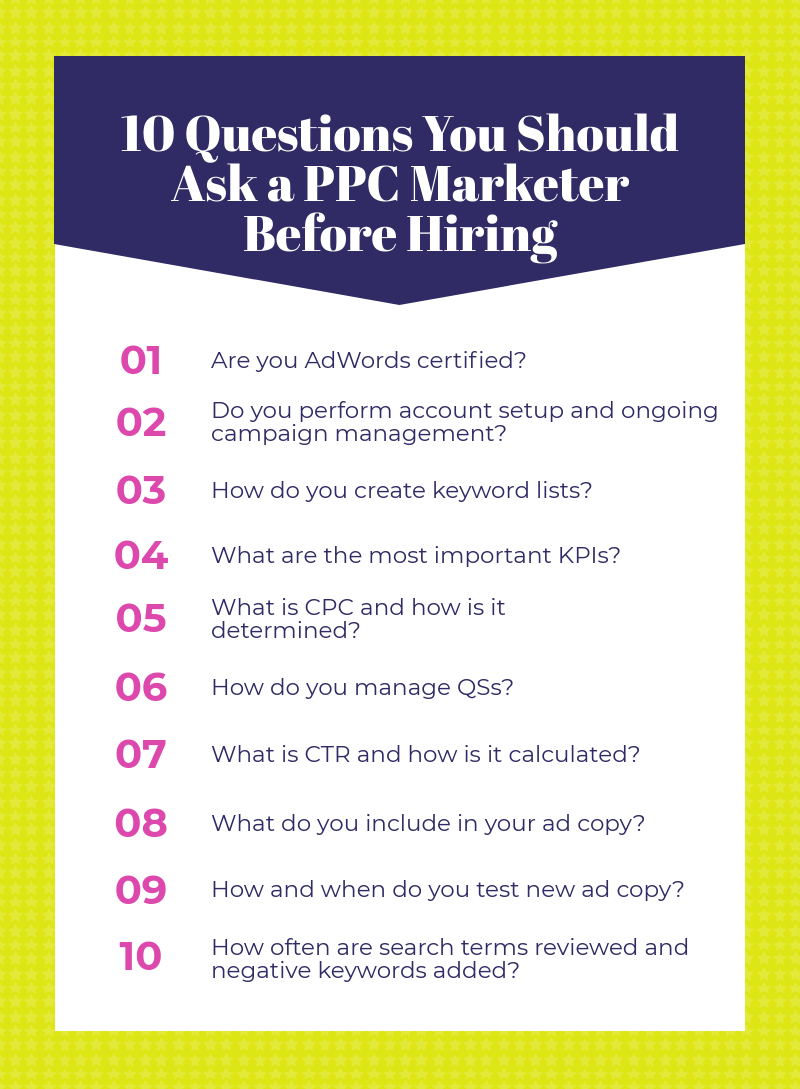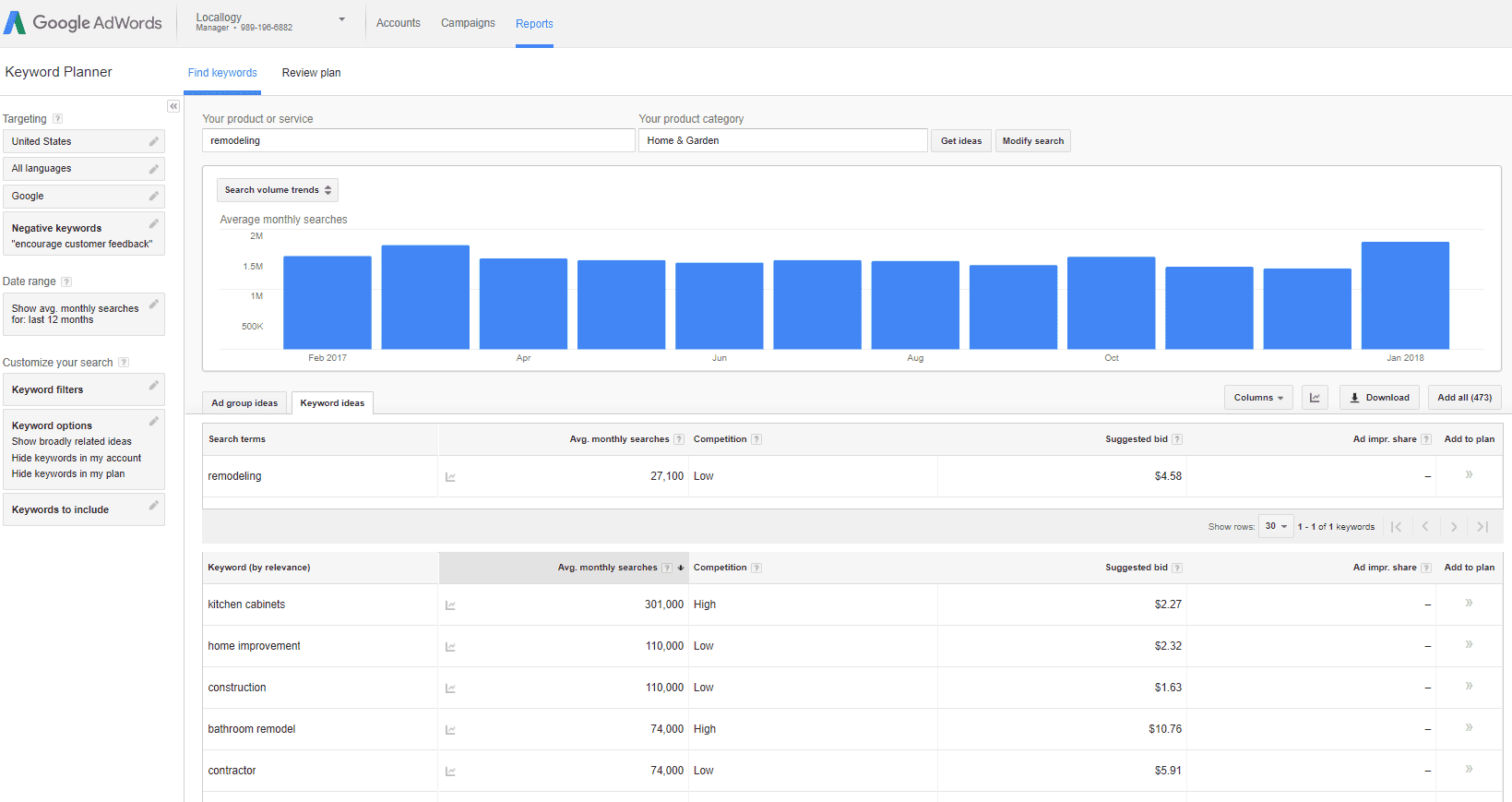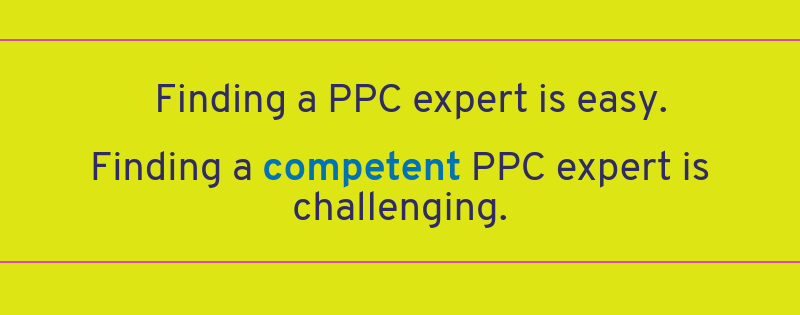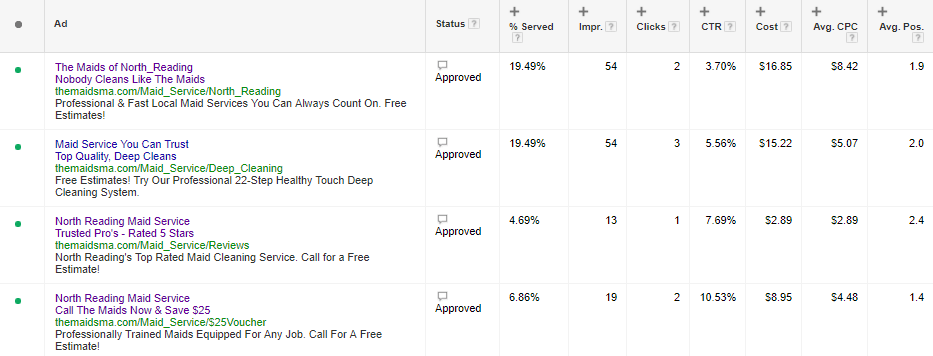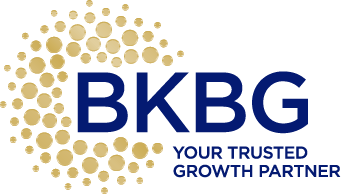10 Questions You Should Ask a PPC Marketer Before Hiring
Is your PPC manager really an expert?
An increasingly popular choice for paid advertisements is pay-per-click ads, also known as PPC. While it’s certainly doable to run a PPC campaign on your own as a business owner, consider the amount of money you’re putting into your marketing efforts. Do you really want to spend your budget on something you’re just trying to figure out? Or would you rather stretch your marketing dollar as far as you can by hiring an expert who is knowledgeable about PPC best practices?
Clearly, we are in favor of hiring a PPC marketer to run your campaign for you (and it’s not just because we provide PPC services ourselves
). Think about the amount of time it would take for you to learn about PPC, set up campaigns and make adjustments. That’s time you could spend running your business.
But when you hire a PPC marketer, you shouldn’t hire just anyone who claims to be an “expert.” There are certain questions you should always ask before hiring a company to manage your PPC campaign. This will help you determine if they’re really the best fit, or if they’re just as knowledgeable about paid ads as you are.
Here are the 10 questions you should ask PPC managers before hiring.
1. Are You AdWords Certified?
The AdWords Certification separates the dedicated, knowledgeable professionals with proven PPC proficiencies from the amateurs. Ask if they’re certified in AdWords or Bing Ads—the two programs used by Google and Bing, respectively, to manage paid ads. If they aren’t certified, they probably aren’t well-versed in using the programs.
2. Do You Perform Account Setup and Ongoing Campaign Management?
When starting a new PPC campaign, it requires both account setup and ongoing management. A PPC expert should do both for you, not just one or the other. This is something that is standard practice for us and other PPC professionals.
3. How do You Create Keyword Lists?
Any PPC marketer should know that it’s important to gather keywords from multiple sources, giving you a well-rounded vision of what keywords people are using in searches. We create our keyword lists using three different sources:
1. Insight provided from our clients (the keywords they tell us they want to focus on)
2. Competitive analysis (looking at our clients who are in similar industries and seeing what keywords are successful for them)
3. Google Keyword Planner (a tool that is included with Google’s AdWords service. This provides search volume data and suggests new keywords based on current search trends).
A true expert in paid ads should be pulling information from a variety of sources to develop your keyword list.
4. What are the Most Important KPIs?
Key performance indicators (KPIs) are a way to measure the success of your digital marketing efforts. For paid advertising, the most important KPIs should be number of conversions (visitors who turn into leads) and cost-per-acquisition (CPA: how much each conversion cost YOU). Both of these are important metrics for determining your PPC success, and, ultimately, your ROI.
5. What is CPC and How is it Determined?
CPC stands for cost-per-click, and it is the average amount you are charged when someone clicks on your ad. With PPC, you get charged every time someone clicks on your ad. The amount you get charged depends on how much you’re willing to spend to rank high for certain keywords.
So, if you work in an industry where you only need to make a few high-quality sales a year to see a decent ROI, such as a home remodeling company, your CPC will be higher than a company who needs to make hundreds of sales a month to see an ROI. An experienced PPC manager should be able to tell you this information and make adjustments to your campaign accordingly.
6. How do You Manage QSs?
A QS, or quality score, is a rating on a scale of 1-10 that Google or Bing gives you based on how well these three things line up in your campaign:
- Keyword relevance
- Ad copy relevance
- Landing page relevance
7. What is CTR and How is it Calculated?
CTR, or click-through rate, is the rate that people are clicking on your ad each time it’s shown. The higher the CTR, the more relevant and attractive your ads are for the targeted keyword. This is a basic measurement of how many people are clicking on your ads, which any experienced PPC manager should be able to explain.
8. What do You Include in Your Ad Copy?
Your ad copy (simply the text that appears in your ads) should always have these four items:
- Your targeted keyword
- An attractive headline
- Relevant messaging and language
- A strong call-to-action
9. How and When Do You Test New Ad Copy?
If you aren’t seeing an ROI from your PPC campaign, it’s time to readjust. Once your campaign has received about 2,000 impressions and/or 200 clicks, your campaign manager should have enough data to begin analyzing. From there, new ad copy can be tested to see if better results are achieved.
10. How Often are Search Terms Reviewed and Negative Keywords Added?
Finally, an experienced PPC marketer should know how often to review your campaign and keyword results. We review search results from all new PPC campaigns several times a week. Keeping a close eye on keyword performance in the early stages shows us things we might have overlooked, such as negative keywords.
Negative keywords are the terms and phrases that people might use with your keywords, but for a completely unrelated search. For example, a cleaning company that is targeting the word “maids” would add things like “French” and “costume” to its negative keywords list, so they don’t show up for people who searched for the word maids but are looking for something much different.
We use extensive negative keyword lists when building a new PPC campaign to avoid irrelevant clicks, which cost you money. An experienced PPC manager should know to review search term reports frequently in the beginning stages, helping you save money and get relevant clicks quickly.
How Does Your PPC Manager Stack Up?
Now that you know which questions to ask a PPC marketer before hiring, you’ll be able to determine who the real experts are. If your campaign manager can answer all these questions with a detailed plan, your campaign is in good hands.
Get the Latest Content in Your Inbox
Want to be the first to know about new content? Sign up to get our weekly blog posts sent to your email!



